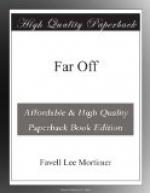[7] The means by which the
Buddhist religion entered China are
remarkable.
A certain Chinese emperor once read in the book of
Confucius
this sentence, “The true saint will be found
in the
West.”
He thought a great deal about it; at last he dreamed
about
it.
He was so much struck by his dream that he sent two
of his
great
lords to look for the true religion in the West.
When they
reached
India, they found multitudes worshipping Buddha.
This
Buddha
was a wicked man who had been born in India a thousand
years
before. The Chinese messengers believed all the
absurd
histories
they heard about Buddha, and they returned to China
with
a book which had been written about him. Ah! had
they gone
as
far as Canaan they might have heard Paul and Peter
preaching
the
Gospel. Alas! why did they go no further, and
why did they go
so
far, only to return to China with idols!
COCHIN CHINA.
Any one on hearing this name would guess that the country was like China; and so it is. If you were to go there you would be reminded of China by many of the customs. You would see at dinner small basins instead of plates, chop-sticks instead of knives and forks; you would have rice to eat instead of bread; and rice wine to drink instead of grape wine.
But you would not find all the Chinese customs in Cochin-China: for you would see the women walking about at liberty, and with large feet, that is, with feet of the natural size, and not cramped up like the “golden lilies” of China. Neither would you see the people treated as strictly in Cochin-China as in China. Beatings are not nearly as common there, and behavior is not nearly as good as in China.
The people are very different from the Chinese; for they are gay and talkative, and open and sociable, while the Chinese are just the contrary. However, they resemble the Chinese in fondness for eating. They are very fond of giving grand dinners, and sometimes provide a hundred dishes, and invite a hundred guests. A man is thought very generous who gives such grand dinners. No one in Cochin-China would think of eating his morsel alone, but every one asks those around to partake; and if any one were not to do so, he would be counted very mean. Yet the people of Cochin-China are always begging for gifts; and if they cannot get the things they ask for, they steal them. Are they generous? No, because they are covetous. It is impossible to be at the same time generous and covetous; for what goodness is there in giving away our own things, if we are wishing for other people’s things?
And now let us leave the people and look at the land. It is fruitful and beautiful, being watered abundantly by fine rivers: but these rivers, flowing among lofty mountains, often overflow, and drown men and cattle. The grass of such a country must be very rich; and there are cows feeding on it; yet there is no milk or butter to be had. Why? Because the people have a foolish idea that it is wrong to milk cows.




